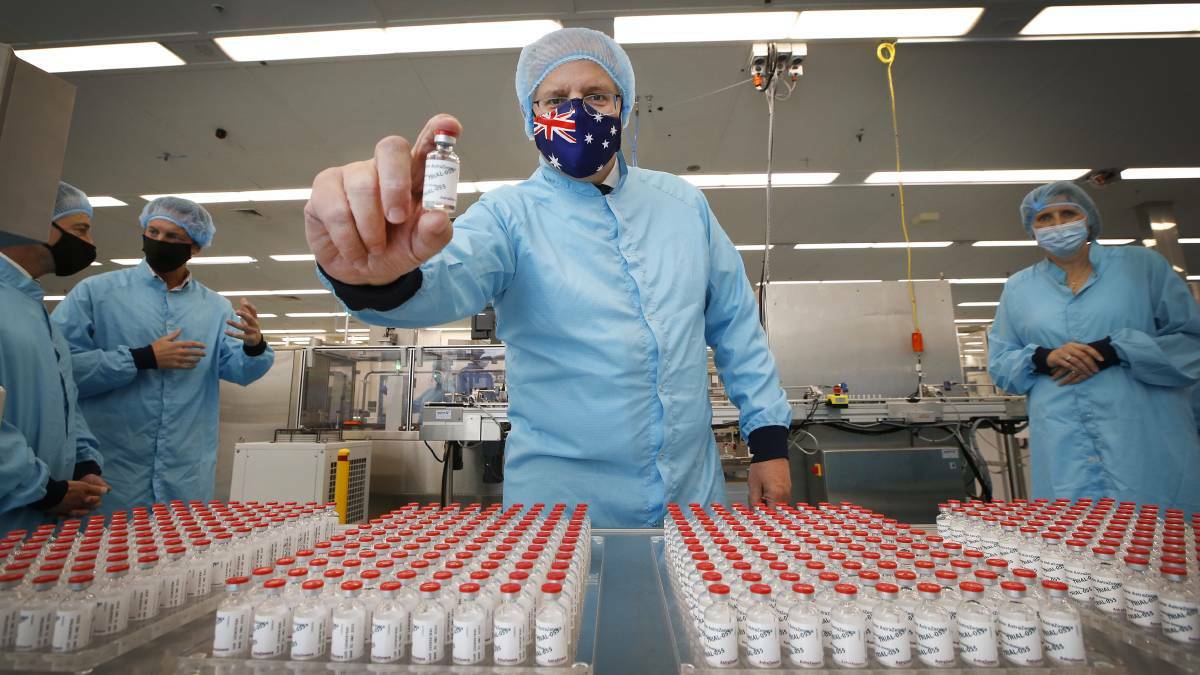
The AstraZeneca coronavirus vaccine has been provisionally approved for use in Australia, paving the way for locally manufactured doses to be rolled out in early March.
Subscribe now for unlimited access.
or signup to continue reading
It is the second COVID-19 vaccine to be provisionally approved by the Therapeutic Goods Administration, following the Pfizer vaccine, which is already in rollout for priority injections next week.
The TGA has given provisional approval of the doses for use in immunisation of adults 18 years and older.
IN OTHER NEWS:
Two doses are required, with 12 weeks the recommended interval between the first and second dose. However, if that is not possible due to imminent travel, cancer chemotherapy or major elective surgery, a minimum internal of four weeks can be used.
"TGA's regulatory approval allows the second dose to be administered from four to 12 weeks after the first," a TGA spokesperson said.
Adjunct professor John Skerritt, who leads the Therapeutic Goods Administration, said Australia was only the second country to be able to approve the AstraZeneca vaccine without using emergency measures.
The decision to vaccinate elderly patients over 65 years of age should be made on case-by-case basis, the TGA advised, with consideration of age, co-morbidities and their environment. There were no safety concerns in that age group were identified in clinical studies or in overseas rollouts.
"Our analysis of the data gives us no reason to suspect that the vaccine would not be fully efficacious in older groups," Professor Skerritt said.
He said the UK experience, where the vaccine has been in use in elderly people for more than a month, had seen good results in the rollout.
Professor Skerritt addressed concerns the AstraZeneca vaccine was not as efficacious as the Pfizer vaccine, saying the data showed it was 100 per cent effective in preventing serious illness and death.
"Frankly, there's not a difference when you go into the real world whether something is 82 per cent or 90 per cent. I would emphasise a lot of the discussion on numbers is not particularly relevant."
Further information from ongoing clinical trials and additional monitoring is expected in coming months.
















